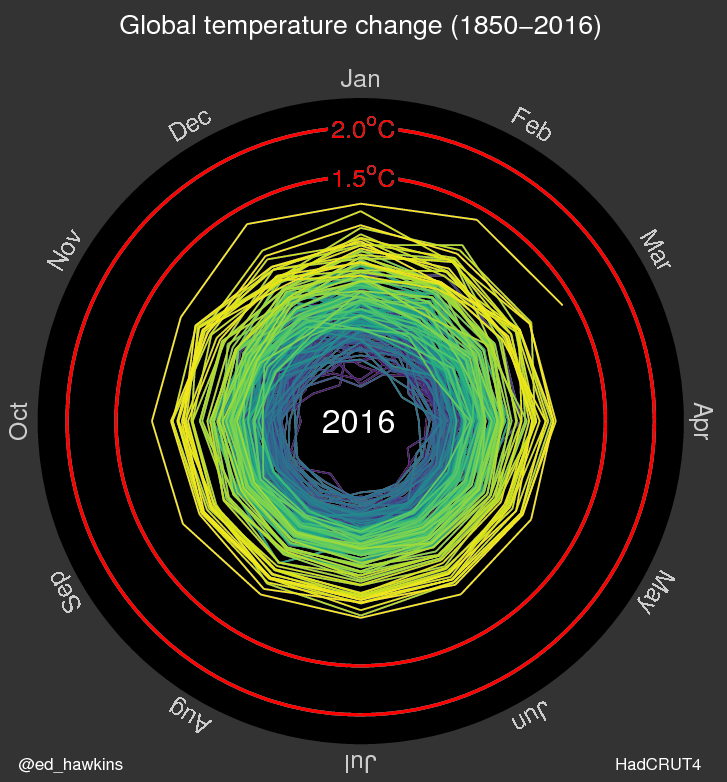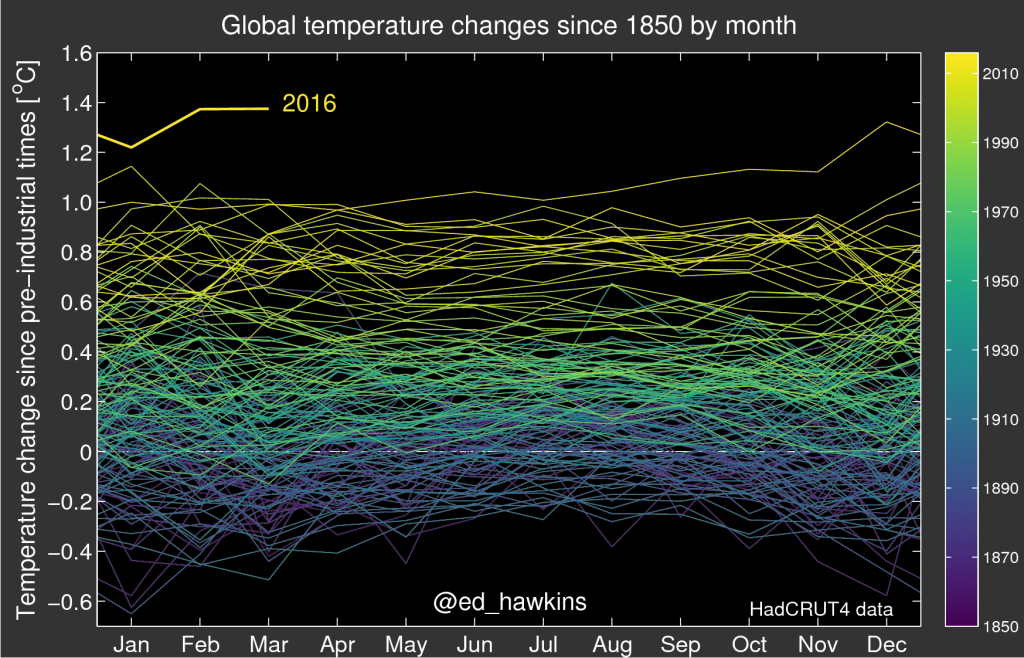A new study in Nature has highlighted that parts of the Antarctic Peninsula have showed a cooling trend over the past couple of decades. Should we be surprised?
Continue reading Noise and signal in Antarctica
Yearly Archives: 2016
Reconciling estimates of climate sensitivity
Climate sensitivity characterises the response of the climate to changes in radiative forcing and can be measured in many different ways. However, estimates derived from observations of historical global temperatures have tended to be lower than those suggested by state-of-the-art climate simulators. Are the models too sensitive?
A new study largely explains the difference – it is because the comparison has not been done ‘like-with-like’.
The implications for understanding historical global temperature change are also significant. It is suggested that changes in global air temperature are actually ~24% larger than measured by the HadCRUT4 global temperature dataset. Continue reading Reconciling estimates of climate sensitivity
Super-duper climate science papers
What was the last truly ‘amazing’, ‘novel’ or ‘spectacular’ science paper that you read? According to a recent bibliographic analysis the chance of encountering such ‘ground-breaking’ research has increased almost nine-fold since the 1970s.
Guest post by Rob Wilby, Loughborough University Continue reading Super-duper climate science papers
Slowdown discussion
The temporary slowdown in global temperatures in the early-2000s is still prompting significant scientific discussion. A recent Commentary on the topic by Fyfe et al. was summarised in an earlier post. In response, a recent post by Rahmstorf et al. reiterates some of the statistical arguments that we discussed briefly in our Commentary1, but misses the main point. Continue reading Slowdown discussion
Spiralling global temperatures
Updates to this animation are now available

Observing long-term climatic changes with unusual sources
We are all familiar with the usual metrics used to highlight that the climate is changing: surface air temperatures, sea level, sea surface temperatures and ocean heat content all rising, glaciers retreating, Arctic sea ice declining etc. But, there are also many other less well known sources of information about how our climate is changing, and many involve ‘citizen scientists’, who often didn’t realise the potential long-term benefits of the data they were collecting. Continue reading Observing long-term climatic changes with unusual sources
Why rainbow colour scales can be misleading
Regular readers will be aware of the #endrainbow campaign to reduce the use of rainbow colour palettes in scientific figures. At the recent EGU conference, I gave a talk on ‘making better figures’, which included an example of a published conclusion which was incorrect due to the use of a rainbow colour scheme. Continue reading Why rainbow colour scales can be misleading
